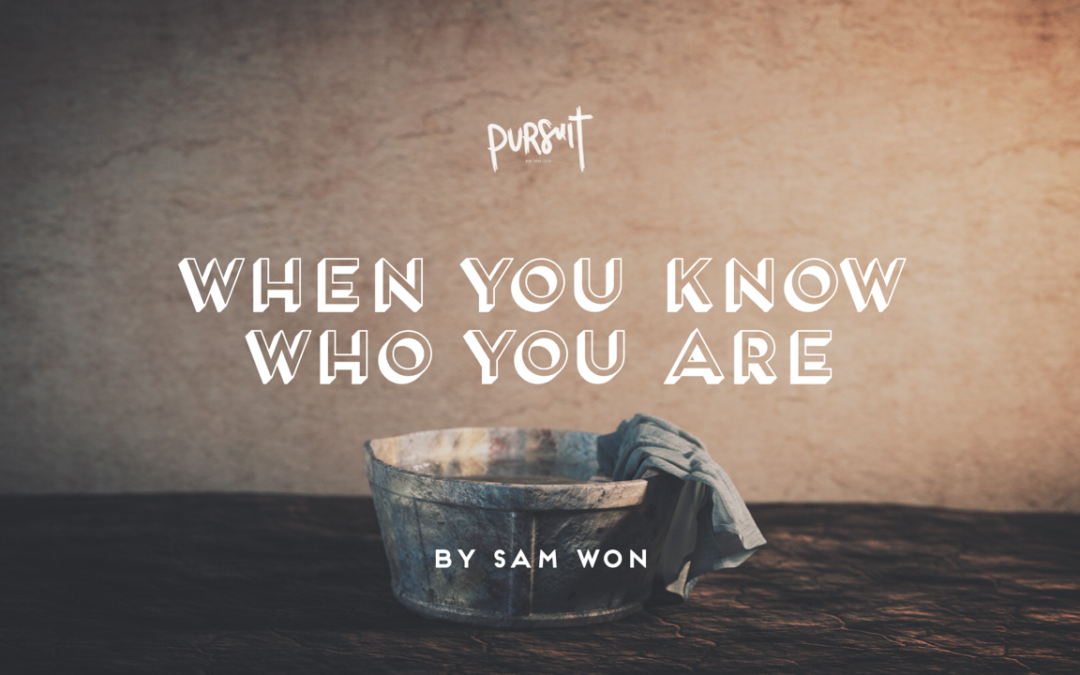by Sam Won
“Before the Passover celebration, Jesus knew that his hour had come to leave this world and return to his Father. He had loved his disciples during his ministry on earth, and now he loved them to the very end. It was time for supper, and the devil had already prompted Judas, son of Simon Iscariot, to betray Jesus. Jesus knew that the Father had given him authority over everything and that he had come from God and would return to God. So he got up from the table, took off his robe, wrapped a towel around his waist, and poured water into a basin. Then he began to wash the disciples’ feet, drying them with the towel he had around him.” – John 13:1-5 (NLT)
Imagine you are told by God Himself that you only have a few more days left here on earth. Initially it would be quite shocking. Even scary! After this reality sinks in, the next thought would be about how you would spend these precious last days. Would you spend it with loved ones? Maybe mulling over some past regrets trying to make it right? Completing your bucket list? No matter what you do, it can be assumed that these final moments would become defining moments. How you choose to spend these last few days would speak volumes about your life and legacy.
In this passage, Jesus comes to that very realization that His end has come near. He is entering the final stretch of His life here on earth. What’s even more interesting is that He has a full understanding of who He is and what He’s been given. Not only that, He knows where He came from and where He’s about to go. So in other words, His identity, purpose, value, and future are set. Wow! Now look at what happens next. With all of that settled and secured, Jesus does the unthinkable and violates cultural standards and norms of His day by washing His disciples’ feet. You can see how shocking this is based on their reaction (poor Peter)!
To really understand the implications of this, we have to understand that this menial task was considered so lowly, that Jewish slaves were not required to do it. Instead, it was relegated only to non-Jewish slaves. Yet the one the disciples called Rabbi is seen taking off His outer garments, tying a towel around His waist, and now bending low next to a washing basin. This act wasn’t considered humble, but humiliating! Jesus was willing to do all of this to show His love for His disciples. What’s wild isn’t just in what He did, but who He did it for. If I knew someone was going to go out of his way to intentionally harm me, I’m sorry, but I’m going to act differently around him. You can call me petty, but I call that having boundaries (kidding)! But in all seriousness, we need to understand the gravity of what Jesus is doing.
In His final moments, He’s not seeking attention by saying, “Look at me.” He’s not asking for acceptance by saying, “Recognize and embrace me.” He’s not asking for their affirmation by saying, “Love me and tell me how much I mean to you.” All of that He already received from the Father! So instead He’s asking, “Let me do this for you,” because He says unless He washes their feet, they have no part with Him. He’s willing to give. He’s willing to serve. Why? I believe it’s because He knew who He was.
Once again in this passage, we see that Jesus had the full picture of who He was, what He had been given, and where He was going, and that allowed Him to go low and wash His disciples’ feet. When you really know who you are, you don’t have to make it about you. You know going low won’t affect your identity. So we see Jesus in this same passage make Himself a servant in the most inconceivable way, not out of a duty or obligation, but out of His sonship. It’s sad when so many Christians find their identity as a servant first rather than a child. It’s easy to have that mindset because we so often value doing over being. But I’ve seen this mindset lead well-meaning, goodhearted believers into either burnout or striving. Too often we try to take on the mindset of Jesus where He said He came to serve not to be served without cementing our sonship first. A child will always take greater ownership than a servant. A child gets to serve his father whereas a servant has to serve his master. Don’t get me wrong, we are servants, but we are children of the Most High first and foremost. Bill Johnson says it best, “When you know who you are, there’s no position too low. It’s when you don’t know who you are, you fight for status, applause, and recognition.”
When you know who you are, you are willing to give and serve and love with no strings attached. You have nothing to prove, and you have nothing to lose. Take time today to allow God to speak to you about your identity and worth as His child. Oh the joy of being His son and His daughter! What power there is from serving out of sonship! Friend, you are His beloved child. Rest in that today!

